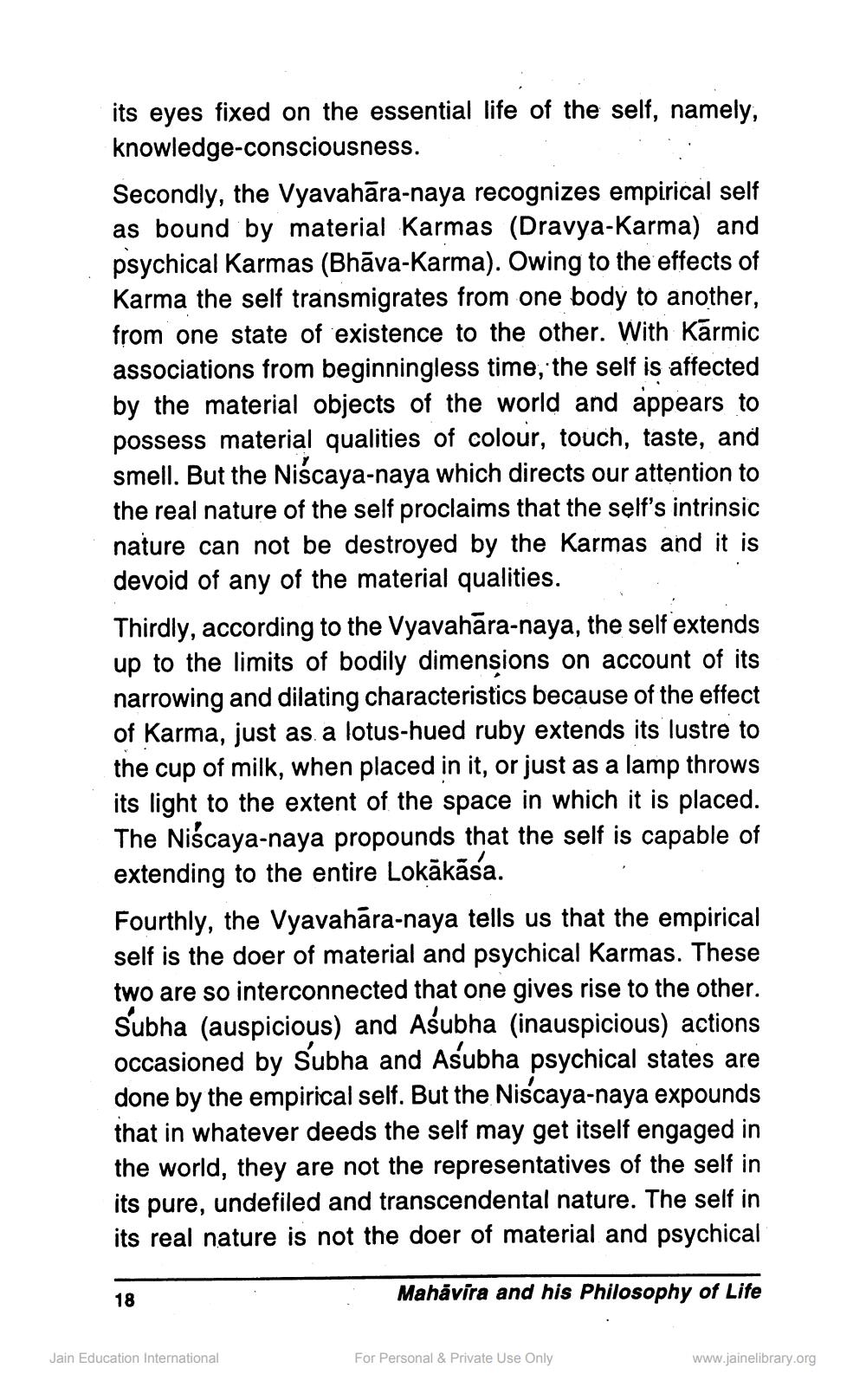________________
its eyes fixed on the essential life of the self, namely, knowledge-consciousness. Secondly, the Vyavahāra-naya recognizes empirical self as bound by material Karmas (Dravya-Karma) and psychical Karmas (Bhāva-Karma). Owing to the effects of Karma the self transmigrates from one body to another, from one state of existence to the other. With Karmic associations from beginningless time, the self is affected by the material objects of the world and appears to possess material qualities of colour, touch, taste, and smell. But the Niścaya-naya which directs our attention to the real nature of the self proclaims that the self's intrinsic nature can not be destroyed by the Karmas and it is devoid of any of the material qualities. Thirdly, according to the Vyavahāra-naya, the self extends up to the limits of bodily dimensions on account of its narrowing and dilating characteristics because of the effect of Karma, just as a lotus-hued ruby extends its lustre to the cup of milk, when placed in it, or just as a lamp throws its light to the extent of the space in which it is placed. The Niscaya-naya propounds that the self is capable of extending to the entire Lokākāśa. Fourthly, the Vyavahāra-naya tells us that the empirical self is the doer of material and psychical Karmas. These two are so interconnected that one gives rise to the other. Subha (auspicious) and Aśubha (inauspicious) actions occasioned by Subha and Asubha psychical states are done by the empirical self. But the Niscaya-naya expounds that in whatever deeds the self may get itself engaged in the world, they are not the representatives of the self in its pure, undefiled and transcendental nature. The self in its real nature is not the doer of material and psychical
18
Mahavira and his Philosophy of Life
Jain Education International
For Personal & Private Use Only
www.jainelibrary.org




